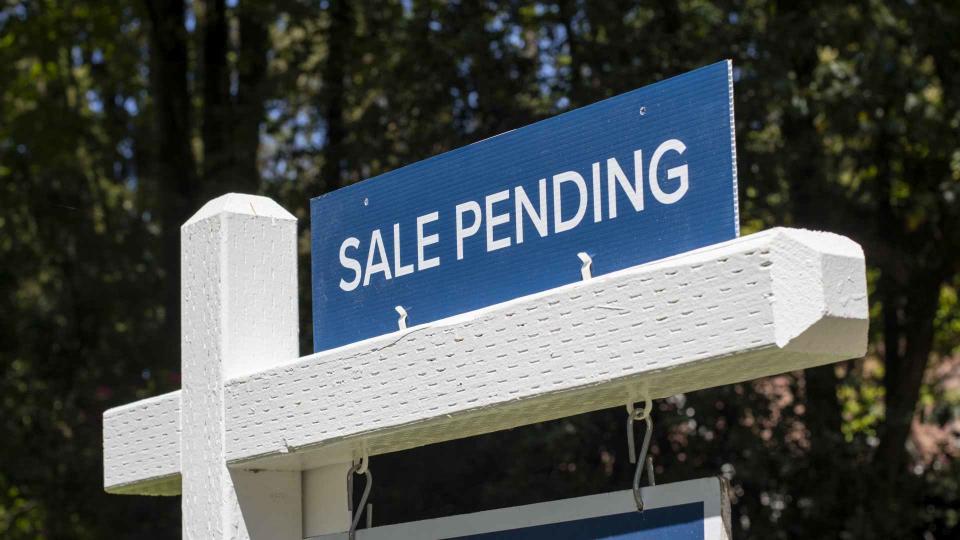5 Factors You Should Consider When Investing in Real Estate

There’s a lot to consider when looking for an investment property. No matter if you’re looking for a single-family home you can rent out, a duplex that you can house hack or a commercial property, there are several factors you should consider.
Be Aware: I’m a Real Estate Investor: 10 Places I Would Never Buy Property
Try This: Become a Real Estate Investor for Just $1K Using This Bezos-Backed Startup
Keep reading to learn five indicators you should look for when investing in a real estate property.
Wealthy people know the best money secrets. Learn how to copy them.
Location of the Property
As the saying goes: “location, location, location.” Being close to shops, restaurants, amenities, green space, scenic views and a good school district can help increase a property’s value.
Future development could impact the property’s future value, so you should also look at the mid- and long-term plans for the property’s location. Today, it might be next to an open field, but you should find out what the field is zoned for. If there are any future development plans near the property, you should be aware of them.
“Consider your target demographics and define your ideal renter’s ‘persona’ to assess which amenities will fit their lifestyle preferences,” said Ryan Barone, founder and CEO of RentRedi. “Families with young children will likely value good schools and nearby parks and sports facilities, whereas retirees might enjoy a more serene setting on or close to a golf course.”
Barone added, “Understanding market trends is also important when predicting the potential of property value appreciation. Look for properties located in high-demand areas with strong economic indicators, such as population growth, job opportunities, the presence of universities or business districts, and cities that are investing in new developments, revitalization projects or infrastructure improvements.”
Find Out: Why a Billionaire Bought a Bunch of Homes In Duluth, Minnesota
Valuation of the Property
Understanding the property’s valuation is crucial for any real estate investment. When you apply for financing, the lender needs to know the valuation justifies the purchase price. The valuation is also going to impact how much you pay for insurance and your ability to put together an accurate investment analysis.
The most common way to value a property is based on a sales comparison approach. This allows you to value a property based on recent comparable sales in the area.
Overall Real Estate Market
It’s also important to consider the overall real estate market. As demonstrated in recent years, the market can shift pretty quickly. Being able to time the market can have a big impact on profitability.
For example, if you had purchased an investment property five years ago, you probably locked in an incredibly low interest rate. However, over the past couple of years, interest rates have spiked, making borrowing money more expensive.
It’s also important to understand the real estate market in the location you’re looking to invest in. Staying up to date on home sales trends, foreclosures, property inventory and unemployment rates can all affect the success of your investment.
New Construction vs. Existing Property
When deciding what real estate property to invest in, you will likely also have to decide whether to choose new construction or an existing property.
New construction properties usually allow you to customize aspects of the property to your preferences and modern amenities. However, new construction can be more expensive, and if the entire neighborhood is new construction, there may be unknowns about the neighborhood and future values.
While you’ll likely be able to receive higher rents from an investment in new construction, an existing property that needs renovations is usually where the money is at.
“If you are looking at real estate from the standpoint of an investor, you should be looking at properties that have good proportions, in great locations that are in need of work,” said Jared Blumberg, licensed real estate salesperson and co-founder of the Blumberg Werner Group at Compass New York City. “Renovation projects are where the money is, but not just any one will do. You want to find projects where you can improve the layouts and the aesthetics of the kitchen, bathrooms, etc.”
Blumberg went on to explain that the goal is to buy a fixer upper with great potential at a good price, then sell it in the future for a large profit. Buyers are willing to pay two to three times the cost of doing renovation work.
Expected Cash Flows
Expected cash flows and profit opportunities are especially important for purchasing investment properties. If you don’t have a positive cash flow, you won’t be able to cover your monthly expenses.
“It’s critically important to conduct a thorough financial analysis to assess affordability, as well as potential rental income and return on investment, before investing in a rental property,” said Barone. “Avoid underestimating the costs of property ownership by budgeting for unexpected expenses such as property taxes, maintenance costs and potential vacancies. By evaluating factors like rent prices and vacancy rates, you can estimate the rental yield — how much income your property is likely to generate over the course of a year as a percentage of its value — to determine the profitability of the investment.”
More From GOBankingRates
Barbara Corcoran: 3 Cities To Invest in Real Estate Now Before Prices Skyrocket
This is The Single Most Overlooked Tool for Becoming Debt-Free
This article originally appeared on GOBankingRates.com: 5 Factors You Should Consider When Investing in Real Estate

 Yahoo Finance
Yahoo Finance 